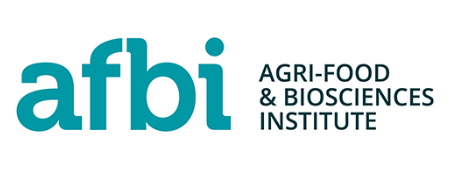Further Details
The Sustainability of Organic Nutrient Recycling in Northern Ireland:
A study of the constraints and opportunities associated with manure management and the potential for beyond the farm-gate strategies.
There are scenarios that exist in Northern Ireland (NI) whereby too much manure material and associated nutrients are being produced by livestock operations to be sustainably applied to corresponding farmland. This is evident through preliminary nutrient balance calculations, as well as in river and soil monitoring, which has uncovered a link between characteristics of surplus manure nutrient application and environmental pollution. My project will investigate this further, through simulating, within GIS, the volume of nitrogen (N) and phosphorus (P) that is applied to farmland via slurry collection and spreading. I will then evaluate this input in reference to thresholds of surplus N and P production, using application limits and plant requirement estimates set forward in the Nutrient Action Programme (2019-22). A mapping framework will be created to identify townlands that exhibit characteristics of surplus manure production, and to flag these areas as sites of higher environmental risk and in need of a change in manure management.
The existence of surplus manure material, albeit a current issue, is also framed in this research as an opportunity to increase agricultural sustainability in NI. Mapping the location of excess organic material production will be used to inform the AD industry on the location and volume of potential new feedstocks, as well as supporting the development of new infrastructure in relation to manure/digestate nutrient redistribution. When excess organic material is rerouted to AD, this not only increases the production of renewable energy but also offers increased control over nutrient management through the opportunity for additional processing steps for nutrient recovery. Both agendas support increased sustainability within agriculture, as manure biomass offers a renewable source of energy to decarbonise the industry, and a decrease in the nutrient surplus will reduce the risk of pollution and work to protect the NI environment. This research and the map outputs will be key in connecting the changing energy sector, the AD industry and agriculture in a way which will produce renewable energy and lower the manure nutrient surplus, creating a greener, more sustainable future for NI.
This PhD studentship is a collaboration between Queen’s University Belfast and AFBI
For further details contact PhD Student: Aine Anderson
